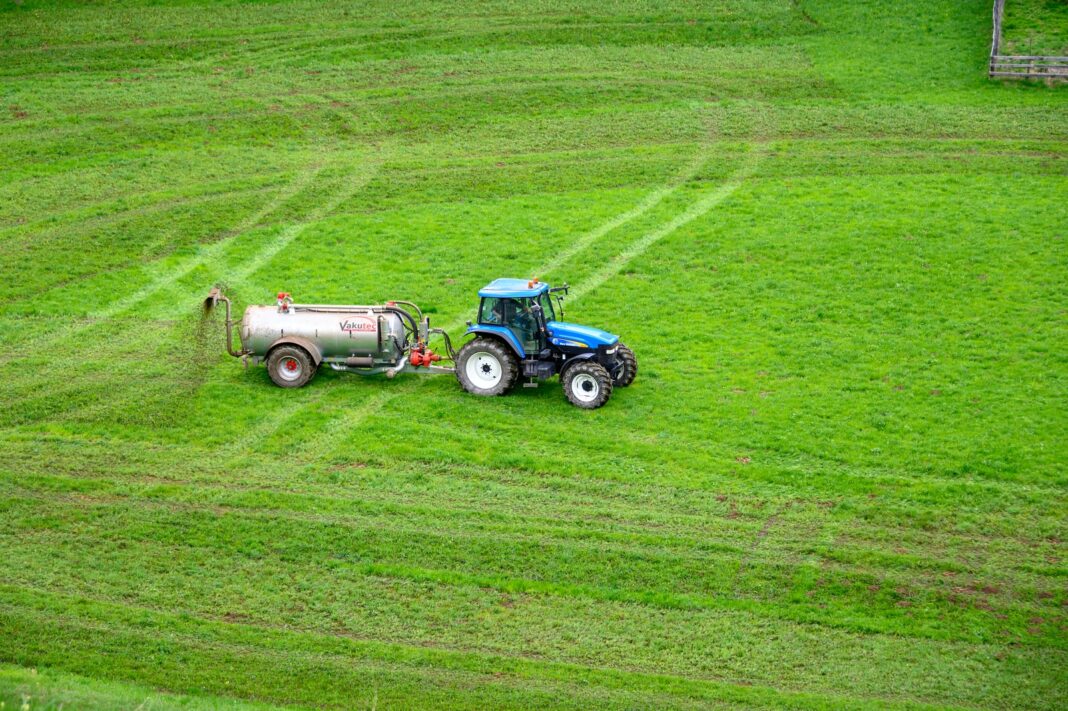Fertilizers Impact the Environment Plants require energy as well as nutrients to flourish, which makes fertilizers an essential technology that’s helped save a lot of cities and towns from hunger. Fertilizers give crops more nutrients, which significantly increases the yield of their crops. Thus, farmers can produce more food on less land and reduce the impact we have on various environmental ecosystems.
However, fertilizers could be considered to be a double-edged weapon because, while they can help crop yields increase however, they can also lead to pollution to the soil and the surrounding water bodies. They can significantly alter ecosystems and may cause disease among humans. The research paper by Oxford says that the majority of fertilizers used on farms aren’t utilized by the crops. The majority of them run out of the farms and into the surrounding area, and causes pollution. This is why, this article will focus on the adverse effects of fertilizers on our health as well as the environment.
Soil quality
Ingestion of too much food can result in a myriad of health problems for people. This is also true for the soil. In addition, fertilizers applied to the soil will raise the acidity of the soil, reducing fertility. The soil’s structure is damaged and crop yields will be reduced. To make sure that farmers are not applying excessive fertilizers, soil testing is recommended at least every 3 years. Soil pH ranges from 0 to 14 which is 14 being the most acidic (most basic) and zero is the most acidic. Different plants require different soil acidity levels to flourish. Certain varieties may thrive in soils that are more basic, while others thrive require more acidic soils. Farmers must therefore be knowledgeable about the crops they grow as well as their soil. The more acidic the soil rises (going closer to zero) it will become more infertile.
While keeping pH in check the use of excessive synthetic fertilizers harms the soil biome that is essential for its structure and health. If the soil’s nutrients and structure are deficient and it is unable to grow healthy crops. Therefore, farmers are much more dependent on fertilisers as the soil in nature lacks structures and the nutrients.
Groundwater quality
Civilizations have always started and grew when they have an unending supply of water as well as land to cultivation. The water source could be streams, lakes, rivers and springs. Agriculture relies heavily on water as animals and plants require water in order to thrive. However, large amounts of synthetic fertilizers could cause water pollution in the vicinity. They contain large amounts of nitrates which leak into groundwater, and then be carried away by rainwaters into the water bodies, leading to contamination.
Human health
We’ve seen before how fertilizers can harm water as well as the soil. It directly affects our health as drinking water that has been polluted or working on farms where soil is damaged by fertilizers could cause serious health problems. Blue baby syndrome is among the negative health effects that are caused by fertilizers. This is the time when babies’ skin becomes blue or pale because of oxygen deficiency. The use of fertilizers and pesticides in farms may increase the risk of developing cancer as well as other chronic diseases, particularly for children as well as those with immunocompromised.
Vegetation health
Certain farmers make fertilizers consisting of sewage sludge that are derived from chemical factories that contain toxic chemicals that cause harm. A study from 2008 showed that earthworms may get poisoned from these substances that resided in the soils in which these fertilizers have been applied. Scientists are currently studying to see if the plants grown on these soils could contain harmful substances. Additionally, some studies have revealed that the nutritional value of food items has diminished over the last five to sixty years as a result of using fertilizers.
Certain species of plants have become extinct because of the excessive use of nitrogen-containing fertilizers. This happens because not all plants require much nitrogen and can die from excessive nitrogen. The excess nitrogen-containing fertilizers can create highly flammable nonnative plant and weeds to grow which could cause serious environmental hazards.
Changes in the climate
Gases such as CO2, methane nitrogen, ammonia, and CO2 that make up the majority of fertilizers, make up the largest source of greenhouse gases. These greenhouse gases constitute the main reason for climate change and global warming. In addition, nitrous dioxide which is a byproduct from nitrogen is one of the top three greenhouse gases.
Although fertilizers are a source of food into our stomachs however its negative consequences must not be overlooked. We should therefore adopt a more precise approach to agriculture, in which pesticides, fertilizers and other farming processes such as irrigation and tillage are performed only in the event of necessity. This will help protect the soil and the climate for future generations.








